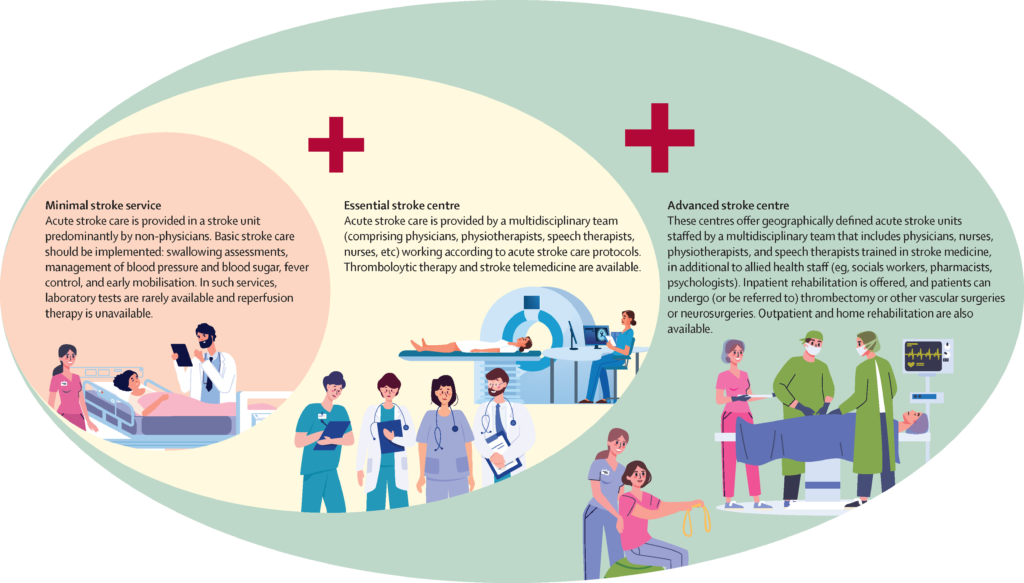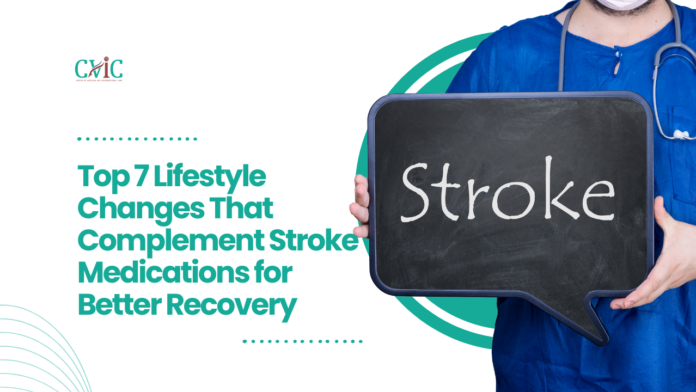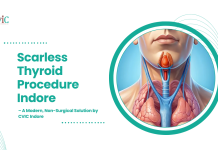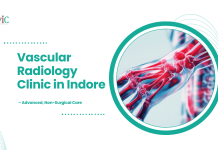Stroke recovery is a long-term process that often requires more than just taking medications. While stroke medications are essential in reducing the risk of a second stroke, certain lifestyle changes can significantly improve health outcomes and the quality of life for stroke survivors. Integrating healthy habits with your medical treatment plan can boost recovery, manage risk factors, and promote overall well-being.
This blog explores seven key lifestyle changes that complement stroke medications, offering a holistic approach to recovery and long-term health. These changes can help regulate blood pressure, cholesterol levels, and prevent further health complications.
The Importance of Lifestyle Changes After a Stroke
A stroke can be a life-altering event, affecting physical, emotional, and cognitive functions. Stroke medications, such as anticoagulants, antiplatelets, or blood pressure medications, play a critical role in preventing future strokes by controlling underlying conditions. However, lifestyle factors like diet, exercise, stress management, and sleep are equally important for a successful recovery.
A comprehensive recovery plan that combines medications with lifestyle changes leads to improved outcomes, helping to restore lost functions and maintain overall health.
Now, let’s explore what lifestyle changes can complement your medication regimen and promote recovery.
1. Prioritize a Heart-Healthy Diet
A balanced, heart-healthy diet is crucial for stroke survivors. Since many strokes are caused by cardiovascular issues, it’s important to adopt dietary habits that improve heart health. The Mediterranean diet, which emphasizes whole grains, fruits, vegetables, lean proteins, and healthy fats like olive oil, is one of the best choices for stroke survivors.
Focus on foods rich in omega-3 fatty acids, fiber, and antioxidants, which help reduce inflammation and lower cholesterol. Avoid processed foods, excessive salt, and trans fats, which can increase blood pressure and lead to further cardiovascular complications.
Also Read: Can Gangrene Recur After Treatment? Understanding Risks and Prevention

Foods to Include:
- Leafy greens like spinach and kale
- Fatty fish such as salmon and mackerel
- Nuts and seeds
- Berries (blueberries, strawberries)
- Whole grains like oats and quinoa
Foods to Avoid:
- Red and processed meats
- Sugary snacks and beverages
- High-sodium foods (canned soups, salty snacks)
Conclusion: Your diet can directly impact how effective your medications are by improving heart function and reducing risk factors like high cholesterol and hypertension.
2. Engage in Regular Physical Activity
Regular exercise is one of the most effective ways to boost stroke recovery. It not only helps with physical rehabilitation but also complements the effects of stroke medications by lowering blood pressure, improving circulation, and maintaining a healthy weight. Exercise is known to increase brain plasticity, which is crucial for regaining lost motor skills.
Begin with gentle activities such as walking, swimming, or yoga, and gradually increase intensity under the supervision of your healthcare provider or physical therapist.
Benefits of Exercise After a Stroke:
- Improves heart health and lowers blood pressure
- Enhances brain recovery by promoting new neural connections
- Boosts mood and reduces depression or anxiety symptoms, which are common after a stroke
Make sure to consult with your doctor to determine which exercises are safe for you based on your physical limitations and medication regimen.
Also Read: Top 7 Most Effective Treatments for Varicose Veins: Say Goodbye to Discomfort

3. Manage Blood Pressure and Cholesterol Levels
Maintaining healthy blood pressure and cholesterol levels is vital to stroke recovery. High blood pressure is a leading cause of strokes, and controlling it can significantly reduce the risk of recurrence. Cholesterol-lowering medications (statins) work best when supported by lifestyle changes such as reducing sodium intake, eating more plant-based foods, and exercising regularly.
By keeping these numbers in check through lifestyle modifications, you enhance the effectiveness of stroke medications.
Key Tips:
- Limit sodium intake to under 1,500 mg per day
- Opt for healthy fats (avocados, nuts) instead of saturated and trans fats
- Monitor your blood pressure regularly at home
4. Quit Smoking and Limit Alcohol Consumption
Smoking and excessive alcohol use are two major risk factors for stroke. Both can interfere with the effectiveness of your stroke medications and increase the risk of having another stroke. Smoking causes blood vessels to narrow, increasing blood pressure, while alcohol can lead to irregular heart rhythms and high blood pressure.
Why Quitting Smoking is Crucial:
- Smoking cessation can improve circulation within weeks
- It reduces the risk of clot formation
- Enhances lung and heart function, improving physical activity tolerance
If you find quitting smoking or reducing alcohol difficult, speak with your healthcare provider about programs or support groups that can help you make these changes.
5. Get Quality Sleep
Sleep is essential for brain recovery after a stroke. Lack of sleep or poor sleep quality can affect mood, memory, and cognitive functions, all of which are critical in the recovery process. Medications like anticoagulants or blood pressure drugs can sometimes affect sleep patterns, making it important to adopt habits that promote restful sleep.
Tips for Better Sleep:
- Maintain a regular sleep schedule by going to bed and waking up at the same time daily
- Create a relaxing bedtime routine that includes activities like reading or listening to calming music
- Avoid caffeine, alcohol, and heavy meals in the evening
- Keep your bedroom dark, quiet, and at a comfortable temperature
Quality sleep improves the body’s ability to heal and enhances the effectiveness of medications by reducing stress hormones that can affect recovery.
Also Read: Top 5 Newest Treatments for Varicose Veins That Actually Work

6. Manage Stress and Mental Health
Managing emotional well-being is just as important as physical health in stroke recovery. Anxiety, depression, and stress are common post-stroke challenges that can slow recovery and interfere with medication adherence. Stress increases cortisol levels, which can counteract the effects of stroke medications aimed at reducing blood pressure or preventing clots.
Practicing stress-reducing techniques such as meditation, deep breathing exercises, or mindfulness can help keep cortisol levels low and improve both mental and physical outcomes.
Effective Stress Management Practices:
- Try mindfulness meditation for 10-15 minutes daily
- Engage in hobbies or creative activities that bring joy and relaxation
- Consider speaking to a mental health professional or joining a support group for stroke survivors
7. Stay Hydrated and Monitor Fluid Intake
Proper hydration is key to stroke recovery, especially if you’re taking medications that require balanced fluid levels. Dehydration can lead to dizziness, fatigue, and even confusion, while overhydration can affect heart function and blood pressure control.
Drink plenty of water throughout the day, but be mindful of fluid intake if your doctor has prescribed medications like diuretics, which may require fluid balance adjustments.
Hydration Tips:
- Drink water consistently throughout the day to stay hydrated
- Limit caffeine and sugary drinks, which can dehydrate you
- Include hydrating foods like cucumbers, melons, and citrus fruits in your diet
FAQs
What are the best foods for stroke recovery?
A diet rich in vegetables, fruits, whole grains, lean proteins, and healthy fats like those found in the Mediterranean diet can promote recovery. Avoid processed foods, excess salt, and unhealthy fats.
Can exercise improve stroke recovery?
Yes, regular physical activity can help regain motor skills, lower blood pressure, and improve heart health, making it a crucial part of stroke recovery.
How does stress impact stroke recovery?
Stress can elevate cortisol levels, which may interfere with the effectiveness of stroke medications and increase blood pressure. Managing stress through relaxation techniques is essential for recovery.
Why is sleep important after a stroke?
Sleep plays a vital role in brain recovery. It helps reduce stress hormones and improves cognitive function, mood, and overall physical health.
Is smoking cessation necessary after a stroke?
Yes, quitting smoking is crucial because smoking narrows blood vessels and increases the risk of clot formation, which can lead to another stroke.
What role does hydration play in stroke recovery?
Staying hydrated supports overall health and ensures medications work effectively. Proper hydration prevents dizziness and fatigue, which can hinder recovery.
Conclusion
While stroke medications are indispensable, making lifestyle changes such as adopting a heart-healthy diet, exercising, quitting smoking, managing stress, and improving sleep quality are essential for a full recovery. By complementing your medication regimen with these healthy habits, you enhance your chances of a successful recovery and reduce the risk of future strokes.




